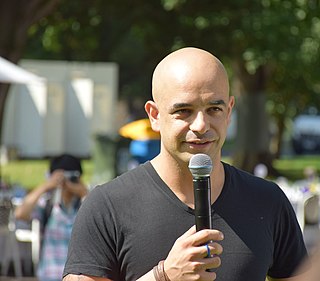A Quote by Carlos Ruiz Zafon
The Cemetery of Forgotten Books is a metaphor, not just for books but for ideas, for language, for knowledge, for beauty, for all the things that make us human, for collecting memory.
Related Quotes
The world is changing, but I am not changing with it. There is no e-reader or Kindle in my future. My philosophy is simple: Certain things are perfect the way they are. The sky, the Pacific Ocean, procreation and the Goldberg Variations all fit this bill, and so do books. Books are sublimely visceral, emotionally evocative objects that constitute a perfect delivery systemBooks that we can touch; books that we can smell; books that we can depend on. Books that make us believe, for however short a time, that we shall all live happily ever after.
I have a whole section of a filing cabinet in my office full of ideas. Some are ideas for books or articles I want to write. One is a romantic comedy; one's about my dad's life. I've also got ideas for books on moral relativism as well as democracy and human nature. There's also a really cool concept for a spy novel.
Ancient art has a specific inner content. At one time, art possessed the same purpose that books do in our day, namely: to preserve and transmit knowledge. In olden days, people did not write books, they incorporated their knowledge into works of art. We would find a great many ideas in the works of ancient art passed down to us, if only we knew how to read them.
All that a university or final highest school. can do for us is still but what the first school began doing--teach us to read. We learn to read in various languages, in various sciences; we learn the alphabet and letters of all manner of books. But the place where we are to get knowledge, even theoretic knowledge, is the books themselves. It depends on what we read, after all manner of professors have done their best for us. The true university of these days is a collection of books.
Abraham Lincoln did have intellectual instincts, a tremendous curiosity on a broad range of subjects, and a near-photographic memory for what he read. He was, at the end of the day, a politician: politics were his heaven, said William Herndon. But Lincoln did take comfort in ideas and books, more so than almost any other president, and he went to books and ideas in moments of perplexity to sort things out. Philosopher, no, but thoughtful and "surprisingly well-read" for his day.



































